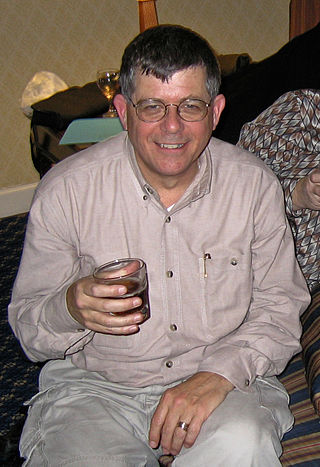
OpenOffice.org (OOo), commonly known as OpenOffice, is a discontinued open-source office suite. Active successor projects include LibreOffice and Collabora Online, with Apache OpenOffice being considered mostly dormant since at least 2015.

StarOffice is a discontinued proprietary office suite. Its source code continues today in derived open-source office suites Collabora Online and LibreOffice. StarOffice supported the OpenOffice.org XML file format, as well as the OpenDocument standard, and could generate PDF and Flash formats. It included templates, a macro recorder, and a software development kit (SDK).
XPointer is a system for addressing components of XML-based Internet media. It is divided among four specifications: a "framework" that forms the basis for identifying XML fragments, a positional element addressing scheme, a scheme for namespaces, and a scheme for XPath-based addressing. XPointer Framework is a W3C recommendation since March 2003.
A web service (WS) is either:
The Organization for the Advancement of Structured Information Standards is a nonprofit consortium that works on the development, convergence, and adoption of projects - both open standards and open source - for Computer security, blockchain, Internet of things (IoT), emergency management, cloud computing, legal data exchange, energy, content technologies, and other areas.
X3D is a set of royalty-free ISO/IEC standards for declaratively representing 3D computer graphics. X3D includes multiple graphics file formats, programming-language API definitions, and run-time specifications for both delivery and integration of interactive network-capable 3D data. X3D version 4.0 has been approved by Web3D Consortium, and is under final review by ISO/IEC as a revised International Standard (IS).
An open file format is a file format for storing digital data, defined by an openly published specification usually maintained by a standards organization, and which can be used and implemented by anyone. An open file format is licensed with an open license. For example, an open format can be implemented by both proprietary and free and open-source software, using the typical software licenses used by each. In contrast to open file formats, closed file formats are considered trade secrets.
In computing, RELAX NG is a schema language for XML—a RELAX NG schema specifies a pattern for the structure and content of an XML document. A RELAX NG schema is itself an XML document but RELAX NG also offers a popular compact, non-XML syntax. Compared to other XML schema languages RELAX NG is considered relatively simple.
The Open Document Format for Office Applications (ODF), also known as OpenDocument, standardized as ISO 26300, is an open file format for word processing documents, spreadsheets, presentations and graphics and using ZIP-compressed XML files. It was developed with the aim of providing an open, XML-based file format specification for office applications.

Jon Bosak led the creation of the XML specification at the W3C. From 1996–2008, he worked for Sun Microsystems.
WebSphere Application Server (WAS) is a software product that performs the role of a web application server. More specifically, it is a software framework and middleware that hosts Java-based web applications. It is the flagship product within IBM's WebSphere software suite. It was initially created by Donald F. Ferguson, who later became CTO of Software for Dell. The first version was launched in 1998. This project was an offshoot from IBM HTTP Server team starting with the Domino Go web server.

SUSE S.A. is a German multinational open-source software company that develops and sells Linux products to business customers. Founded in 1992, it was the first company to market Linux for enterprise. It is the developer of SUSE Linux Enterprise and the primary sponsor of the community-supported openSUSE Linux distribution project.
The Microsoft Open Specification Promise is a promise by Microsoft, published in September 2006, to not assert its patents, in certain conditions, against implementations of a certain list of specifications.
XML documents typically refer to external entities, for example the public and/or system ID for the Document Type Definition. These external relationships are expressed using URIs, typically as URLs.

The Web Services Description Language is an XML-based interface description language that is used for describing the functionality offered by a web service. The acronym is also used for any specific WSDL description of a web service, which provides a machine-readable description of how the service can be called, what parameters it expects, and what data structures it returns. Therefore, its purpose is roughly like a type signature in a programming language.
Service choreography in business computing is a form of service composition in which the interaction protocol between several partner services is defined from a global perspective. The idea underlying the notion of service choreography can be summarised as follows:
"Dancers dance following a global scenario without a single point of control"
In computing, Open Data Protocol (OData) is an open protocol that allows the creation and consumption of queryable and interoperable Web service APIs in a standard way. Microsoft initiated OData in 2007. Versions 1.0, 2.0, and 3.0 are released under the Microsoft Open Specification Promise. Version 4.0 was standardized at OASIS, with a release in March 2014. In April 2015 OASIS submitted OData v4 and OData JSON Format v4 to ISO/IEC JTC 1 for approval as an international standard. In December 2016, ISO/IEC published OData 4.0 Core as ISO/IEC 20802-1:2016 and the OData JSON Format as ISO/IEC 20802-2:2016.
An Extensible Resource Identifier (XRI) is a scheme and resolution protocol for abstract identifiers compatible with Uniform Resource Identifiers (URI) and Internationalized Resource Identifiers (IRI), developed by the XRI Technical Committee at OASIS. The goal of XRI was a standard syntax and discovery format for abstract, structured identifiers that are domain-, location-, application-, and transport-independent, so they can be shared across any number of domains, directories, and interaction protocols.
Hyperledger is an umbrella project of open source blockchains and related tools that the Linux Foundation started in December 2015. IBM, Intel, and SAP Ariba have contributed to support the collaborative development of blockchain-based distributed ledgers. It was renamed the Hyperledger Foundation in October 2021.




